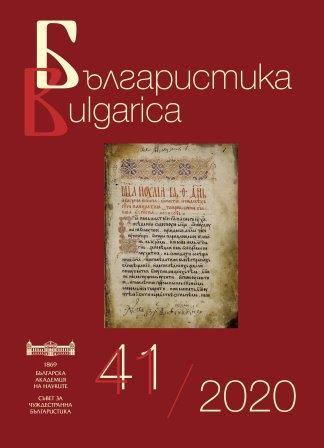
We kindly inform you that, as long as the subject affiliation of our 300.000+ articles is in progress, you might get unsufficient or no results on your third level or second level search. In this case, please broaden your search criteria.

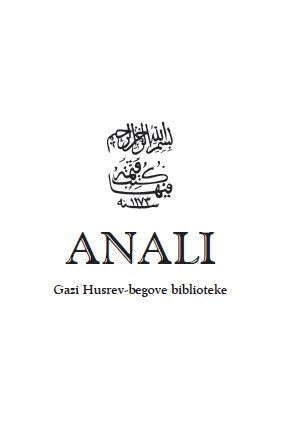
This paper aims to examine the work entitled Taʻlīm-i fārisī in the context of the Ottoman tradition of the grammatical study of the Persian language. Taʻlīm-i fārisī, most likely penned by Kemal-pasha, is a short yet exceedingly significant primer for Persian language students dated in the middle of the 19th century. After a brief overview of the Persian grammar studies in the Ottoman Empire, the authors present the work and its author and conduct an analysis of the content of Taʻlīm-i fārisī. In terms of its underlying methodology, this work stands halfway between two principal tendencies: one is the traditional approach to studying the Persian language in the Ottoman Empire; another is a new approach developed under the influence of grammatical description of European languages. This paradigm shift in the Persian language's grammatical description within the Ottoman Empire is readily observable in the primer under review.
More...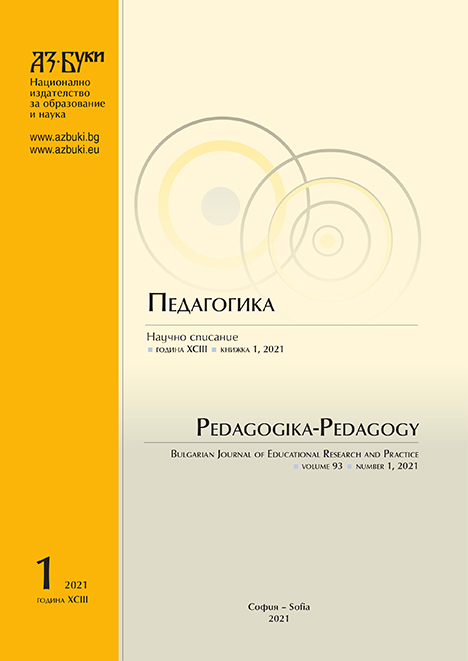
The text was built on the concept of “showcase of identity” developed by the French ethnologist Jocelyne Bonnet-Carbonell. In the context of this metaphor, the types of identity of Bulgarian school have been described in a postmodern perspective. The aim is to make a parallel between them and to indicate the possible, actual and necessary choice of the Bulgarian school in constructing its own identity. As a document and “commodity”, the “showcase of identity” of the school institution is the opportunity to gain insight not only of the visible field of education that is to be sold, but also of the invisible one, which must be kept and preserved as a spiritual substance.
More...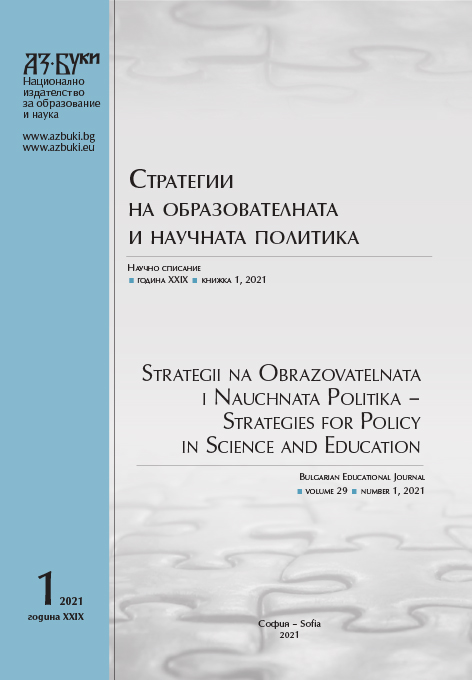
In the present article is made a normative analysis of the Bulgarian legislation in the sphere of higher education in the part of the recent legislative amendments. The reform in the in the area of higher education is a process, started directly after the democracy changes in the country, which encompasses several sub-stages. The authors focus towards examination of the actual amendments in the normative regulation and based on it point out the contemporary tendencies in this area. On the one side is examined the internal normative regulation, on the other side the Bulgarian higher schools are examined in the context of harmonization of the domestic law with the Law of the European Union. Based on the analysis are made conclusions and summaries, directed to the practical appliance and improvement of the legal regulation.
More...
Distance learning is becoming more and more rooted in our life; it will not disappear after the pandemic and occupy a certain large niche in education. Nothing can replace human contact, but we can enhance the remote aspect of learning. In our study, we use the empirical method; data collection by continuous sampling and factual activity. The theoretical research method is reflected in the subsequent modeling of the flexible trajectory in distance education. The study has found the following results. The alternating phases of distance learning, live lectures and seminars can be planned so that for the period of live communication you need to put the maximum of theory and practice on those issues that are difficult to solve in distance learning. To build effective work in an online university, an online platform is needed. When performing the same type of grammar tasks on an online platform with the aim of assimilating them and further automation, the teacher saves energy for more efficient work in the webinar. The advantages of online learning compared to traditional classes are that an absent student may later be asked to complete a task that will be automatically verified and tracked. Taking tests and exams in the online conference mode is easier, easier than it seems if you learn to use its convenient options. The psychophysics of some students is such that the pressure of the teacher in the class is not the best form of assimilation of the material. Having free access to the task, he can complete it at the most favorable time, at the best pace for himself, to remake tithe disadvantages of the platform are that uncontrolled work on it can lead to an endless search by students for a collective answer to tasks, tasks, based on intuition and their mechanical execution. Do not overestimate the student's desire to comprehend knowledge. Control here should be even more serious than in full time classes. The results of the study can be applied in a new environment in which teachers and educators are not predictably found with the prospect of an inevitable rooting in later life.
More...
Limiting fake scientific publishing requires future authors, especially PhD students, postdoctoral researchers and young scientists, to be aware of the dangers of marginal and fake journals and to be extremely careful when submitting their manuscripts. The study, analysis and summary of advanced practices is presented in the paper which is related with the experience concerning the development of adequate training for the formation of oral and written communication skills in higher education. The results show that they are mostly focused on the creation of the scientific text and its successful presentation, but not to the recognition of the emerging risks in scientific publishing. On the other hand, a survey of 232 people from the academic community of Sofia University shows that some of them (mainly PhD students and young scientists) is not familiar with the manifestations of "predatory" publishing. One of the effective ways to overcome these existing deficits is to organise and to conduct specialized trainings aimed at familiarizing and clarifying the problems of scientific communication and opening up opportunities for the formation of skills for successful publishing. The article proposes a curriculum for a university training course for PhD students and young scientists. The training focus is the practical skills forming about choice of suitable journals for presentation the scientific results as well as the manifestations of marginal scientific publishing and ways to avoid them by solving different cases. The proposed course is approbated and evaluated within the realized trainings of Master’s students, PhD students and young scientists from the Faculty of Chemistry and Pharmacy of Sofia University through a survey that shows its usefulness and proves the necessity of including such training in the curricula of all levels of education in Bulgarian universities.
More...
This article presents results from research on preferences of social work students (n=60) towards particular methods and forms when practicing their profession. A conceptual model has been applied, where measurements and analysis lead to identification of two methodological orientations: micro- and macro-orientation. Based on research data conclusions are made about the profile of the students' interests for practicing the social work profession in particular areas and settings. Presented analysis concludes that social work education prepares professionals with profiles relevant to the needs of social work practice.
More...
The article analyzes main documents from the legislation of secondary education. The new function of pedagogical specialists „career guidance and counseling“ has been highlighted. Emphasis is placed on the professional portfolio as a tool for career development. The problem of the formation of career guidance and counseling competences and career management competencies is outlined. Good practices in basic university training of pedagogues in relation to the formation of these competences are presented. These include updating curricula and programs, introducing new courses. Recommendations and conclusions are formulated.
More...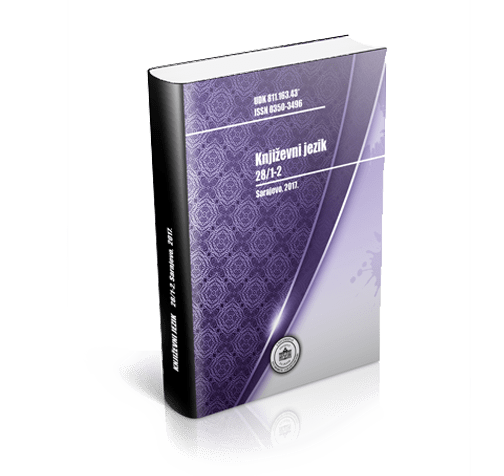
In this paper, the authors engage in questions regarding the courses and methodic research in the curriculum of the native language subject during the era of The Kingdom of Serbs, Croats and Slovenians, or Yugoslavia. The state of education is analysed, primarily the classes of native language and literature after the Austro-Hungarian dissolution and the emergence of The Kingdom in the late 1918. New government enacted a ‘Law of the official language and writing’ which appoints the new language in Bosnia and Herzegovina to be either Croatian or Serbian, and Latin and Cyrillic alphabets are equal in use. The curriculum of the native language, through grammar and orthography, was unitary conceived. In Bosnia and Herzegovina, neither autonomous nor native linguistic or educational policies existed, therefore, the methodic research regarding the native language and literature was non-existent, except in the case of Salih Ljubunčić, Bosnian methodologist who worked in Zagreb. In The Kingdom of Yugoslavia, the curricula of the native language and literature for elementary schools and high schools were methodically and systematically made, with different syllabi and regulations, but mostly with exclusion of Bosnian and Herzegovinian writers and local linguistic distinctiveness.
More...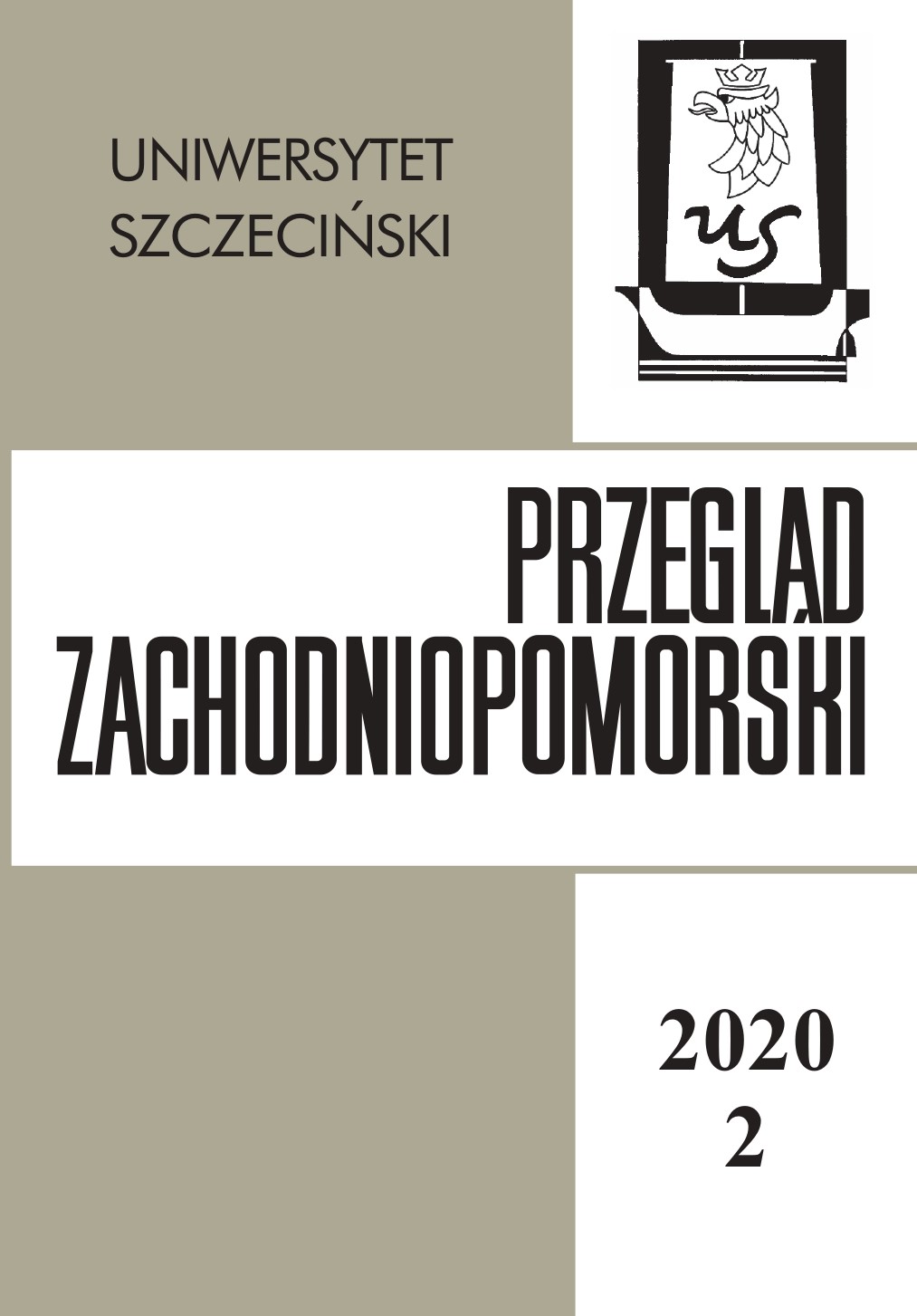
Established in 1667, the Academic Gymnasium in Szczecin was a continuation of the tradition of the princely Pedagogium. Also, like in the Griffins times, the school and the foundation which financed it were supervised by a schoolboard of four persons, comprising the representatives of the province administration and the Pomeranian Estates. The role of the schoolboard was defined in the Gymnasium Statute. It included controlling the administration of the Foundation’s estate, its revenues, as well as the administration of the school, employing professors, admitting students to the establishment, supervising them, and supervising the didactic process. In the 18th century, in the framework of the Prussian absolute monarchy, the activity of the schoolboard was limited by the numerous interventions of the central authorities in Berlin, which most often took the final decisions concerning the Gymnasium and the Marian Foundation.
More...
The purpose of the present study is to describe the medical education provided in the 17th century Szczecin in the context of the Swedish academic network of the time, comprising five universities with the medical faculties (Uppsala, Dorpat/Tartu, Åbo/Turku, Greifswald, Lund). Subject to comparative analysis were: the number and continuity of the personnel of the chairs of medicine, the availability and quality of the infrastructure used in didactics and the scientific research carried out by the professors of medicine, the number and topics of the medical discussions and dissertations presented with the participation of students, and the scientific activity of the professors of medicine from various centres. One of the analyzed centres with which the Gymnasium chair of medicine couldn’t be on a par in neither of the analyzed aspects was the faculty of medicine in Uppsala. The most significant difference between Szczecin and Greifswald was the Greifswald faculty’s of medicine right to grant the Ph.D. degree. However, Szczecin could not only equal with the new centres, established in the discussed period (Dorpat, Åbo, Lund), but often surpassed them thanks to the commitment and activity of the professors working there.
More...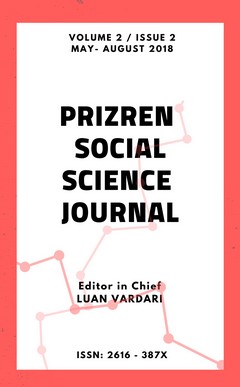
Education in Albania, as an important sector of the national development, aims to equip the future Albanian citizens with the necessary knowledge, skills and abilities in order to educate and commit them to achieve the country’s economic and socio-cultural development. After the 90’s the Albanian economic and social situation have significantly influenced the education and reforms. Despite the political changes, education imposed profound changes in curricula or other components. Emerging from highly politicized curricula, the reform has set new principles and modern requirements. Other issues that constitute the reforms, includes the development of preschool education, reduction of illiteracy, avoiding the phenomenon of school abandonment, improving schools infrastructure, increasing the teachers professionalism, providing free textbooks, modernization of teaching methods, establishing evaluation standards. This paper will highlight the main problems based on the substantial education methods on international and national levels and the impact of reforms implementation in education system.
More...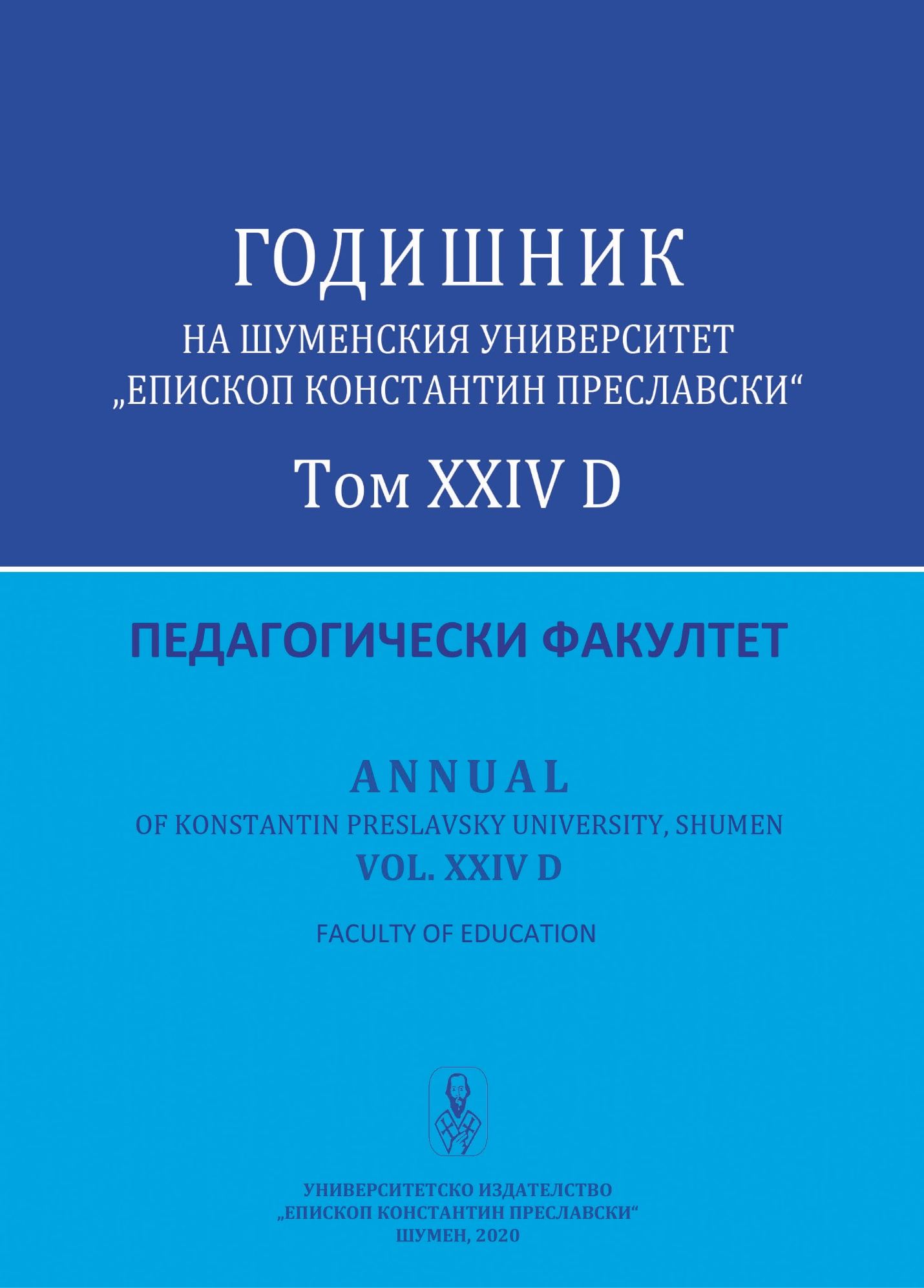
The research presents the normative regulations of teacher council in Bulgarian school from 1878 till 1944. The analysis of the normative documents reveals rights and obligations of teacher council.
More...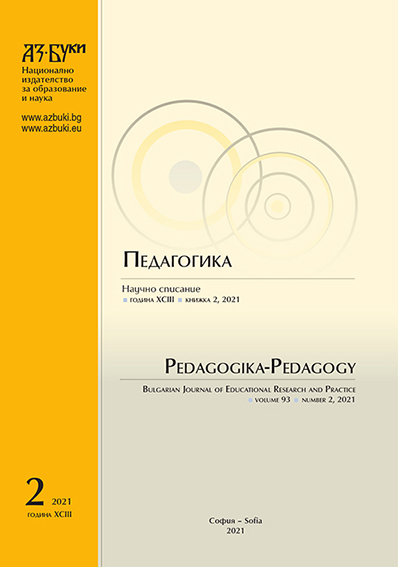
This article presents a part of the research, dedicated to the life and work of one of the most active Bulgarian enlighteners – Todor Ikonomov (1838 – 1892). The article also analyses the contributions of the Bulgarian pedagogues and enlighteners – Stefan Izvorski, Sava Filaretov, Sava Dobroplodni, Iliya Blaskov to the process of inspecting in the eparchy of Varna and Preslav before and after the Liberation.
More...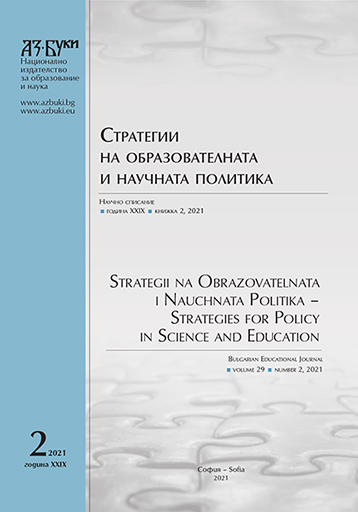
The competence approach and innovations in education are one of the levers for the development of quality in academic education. The Strategy for Development of Higher Education 2021 – 2030 (draft) sets out a number of priority areas and goals for the development of higher education. In the present study, these objectives are operationalized through a competency analysis of updated curricula of direction 1.2. “Pedagogy”. The study specifies a number of concepts and scientific statements at the meta-level, so as to outline the operational scientific structure of the competency approach. A qualitative criterion analysis of the teaching activity is made in order to outline the leading approaches in academic teaching, types of competencies set in the curricula, effective methods of teaching and learning.
More...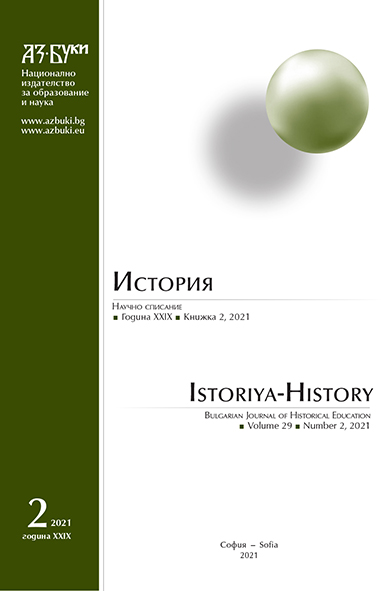
This article aims to explain how the textbooks for the subject History and Civilizations in the 5th grade influence the formation of the initial economic literacy of the school students. By studying prehistory and the ancient world they learn about the economic life in the past and acquire some important economic concepts. This article examines, analyzes and compares the textbooks with regard to the above purpose. Good examples in the relevant textbooks are shown, which to the biggest extent contribute to the formation of the school students' initial economic literacy. It is an important part of the formation of their civic culture. The topic about young people's knowledge of economic development and their economic culture is important for their successful future participation in the economic life of the present-day Bulgarian society.
More...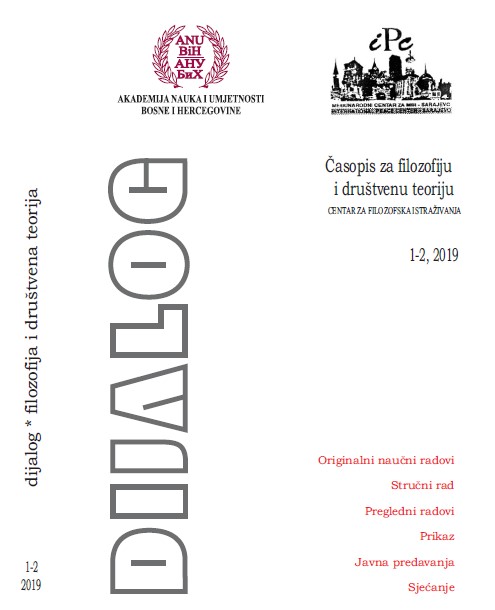
Educational policy, in theory and practice, represents the space of good decisions but as well the possibilities of manipulation. Educational policy can be recognized in political parties arguments or scientific research methodology based in ethics and low. However, the main obstacle in educational policy in Bosnia and Herzegovina is missing the structure established in criteria of credibility, systematic approach, arguments and research data-base (documents). All educational reform efforts have reached so far for more centralized solutions, without well-developed sensibility for implementation in which “the intimate personal contact with change” has been missing. Observation of scientific and professional expert work of the academician Adila Pašalić-Kreso is a proceeding to constructive answers on educational policy questions. Academician Pašalić-Kreso contributions to educational policy will be considered at two levels: local and global. Naturally, as we have learned in existential philosophy lessons, life is always wider and more complicated from any effort of putting it into a concept. Therefore this paper is just a modest attempt to share some thoughts of what the academician Pašalić-Kreso has witnessed in her educational policy work.
More...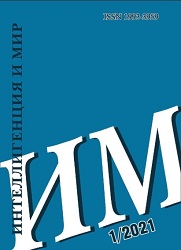
In the context of the pandemic, that has engulfed the worldpresently, scientists’ interest in the history of medicine in different historical periods is growing. The role of doctors in the life of society at different times and in different countries, in particular in pre-revolutionary Russia, becomes very relevant topic now. The purpose of the article is to identify and summarize the main features of the official position of the medical intelligentsia in Ivanovo- Voznesensk — large industrial city in Russia at the turn of the 19th — 20th century. The purpose is realized through the following tasks: to determine the special education, received by the medical intelligentsia; to analyze the algorithm of assignment of ranks to doctors in pre-revolutionary Russia; to characterize the features of the service of medical intelligentsia in wartime; to study the reward system for doctors. The author used special methods of historical research — historical-systemic and historical-comparative methods. Doctors depended on the state machine, being partially embedded in it. The extent of this dependency was different. Doctors of the state department depended entirely on it, while the situation of city and Zemstvo doctors looked freer, local governments usually was sympathetic to the needs of health care and most often did not skimp on the payment of doctors. Factory doctors felt not so free, because they depended on the whims of private entrepreneurs. It should be taken into account, that doctors often worked at several jobs, for example in the city hospital, in the factory reception and in school at the same time. During the wars, all doctors, regardless of their official position, considered themselves mobilized and honestly performed patriotic duty.
More...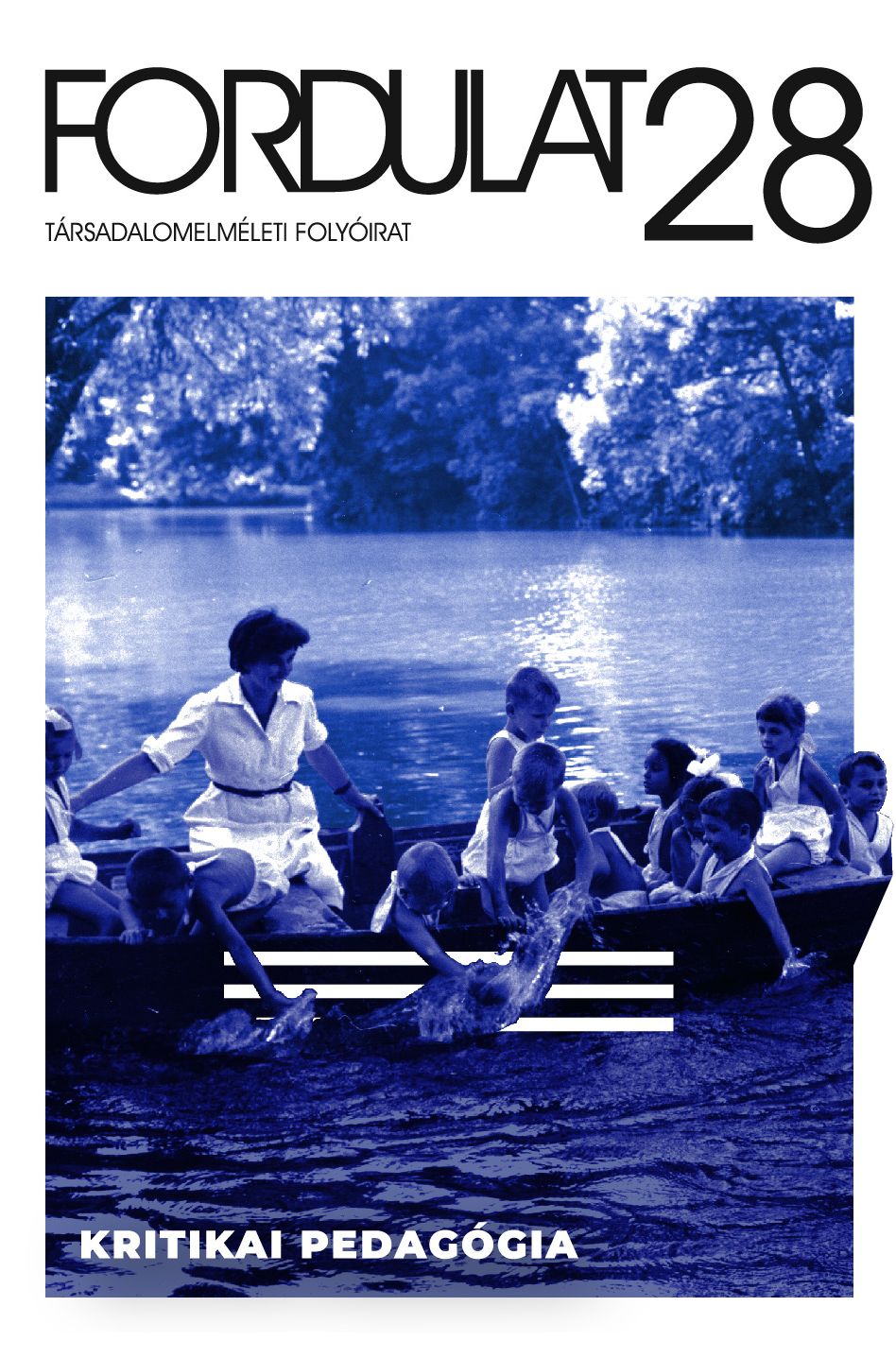
The Free School of Robin Goodfellow is a pedagogical initiative launched in 2014, the aim of which is to present an alternative – theoretical as well as practical – to the existing system of education. Since its foundation, the free school has been seeking to be a pioneer in the area of education, trying to put into practice the principles of an anti-authoritarian and communitarian education on the basis of a radical critique of society, supporting a revolutionary transformation of social relations.The authors of this essay have been among the founders of the free school, who summarize the key thoughts of their lectures and papers presented and published during the last several years. They also describe the programs organized by the free school, which range from shadow-plays to the modelling of processes that form the surface of the Earth. They also reflect on the difficulties – both objective and subjective – which have hindered the development of their pedagogical attempt, and hope to provide help for all those who are dissatisfied with the present educational system, while being open to a radical critique of capitalism and ready to act for a change.
More...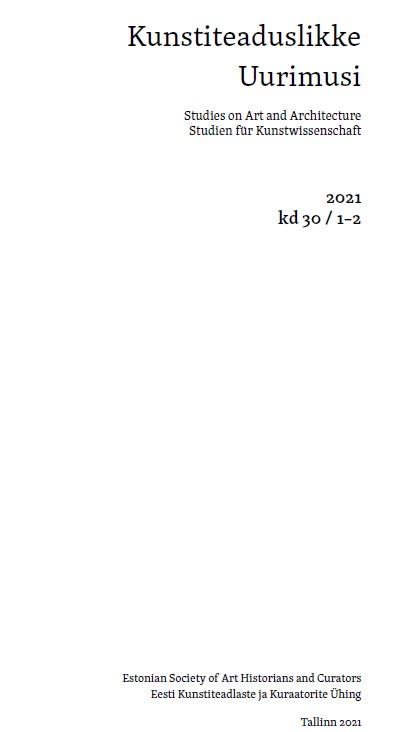
The Institute of Art of the Polish Academy of Sciences in Warsaw served as a unique distributor of Western visual and performative arts research during the Cold War. From its foundation in 1949 until the late 1960s, the institute enjoyed a hegemonic position that allowed it to dominate intellectual exchanges in the arts between Polish and Western scholars. The institute’s library provides information concerning the circulation of art theories at that time. Through extensive private contacts, the institute collected the latest texts on artistic phenomena and theories that authorities perceived as ‘unofficial’. Analysis of the collection allows for a reconstruction of the distribution of knowledge.
More...